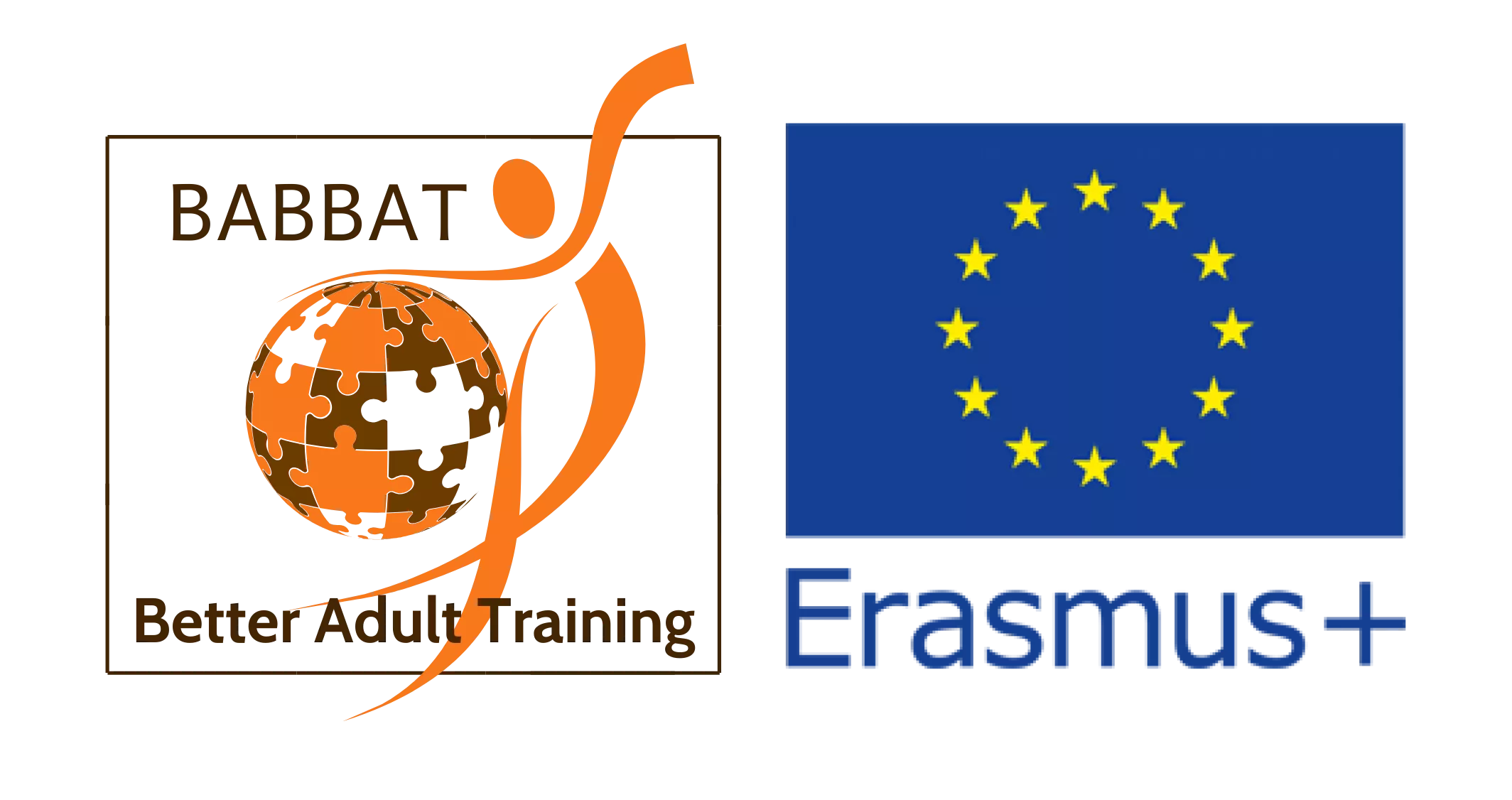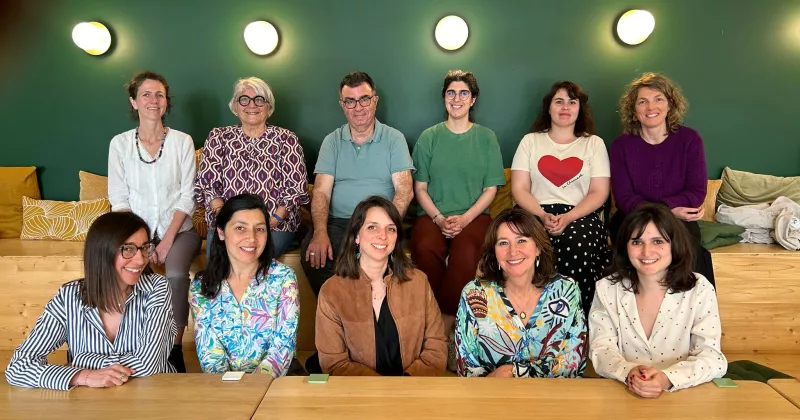Encouraging Low-skilled and Low-qualified Adults to Get Back into Training or Education
Erasmus+ funded project „BABBAT – Better Adult Learning“ (2019-1-IS01-KA204-51131) is focusing on finding ways, methods to motivate low-skilled and low-qualified adults and adults in general to use the lifelong learning opportunities available on the European level.
In the past 8-10 months, the situation in the education field has changed dramatically – most of it was transferred to the virtual space and many universities, big corporations, galleries, museums have opened their resources and there have been created many opportunities for formal, non-formal and informal education. As one of the persons interviewed in this project has pointed out, it is possible to learn many different subjects (even professions) at once which open you different career opportunities (the story of Inga might be found here). But the number of adults seeking training and education in many European countries remains low.
In the BABBAT project, uniting 7 partners from 7 European countries, we have started with the short analysis of the local situation in each country related to adult education, obstacles, challenges adults face when seeking education as well as tried to point out the main motivational factors encouraging adults to go back to school (university) or participate in the selected training.
The table below presents the summary of the data, whereas more information about the situation in each participating country is provided here: https://www.ekopodebrady.cz/ekogymnazium/o-skole/projekty/bob-as-bait-better-adult-training/ .
| COUNTRIES INVOLVED IN THE BABBAT PROJECT
| ||||||
Lithuania | Latvia | Estonia | Greece | The Czech Republic | Spain | Iceland
| |
MOTIVATION | A wish to expand one’s personal horizons;
Improving competences in the work field;
Better career opportunities;
Socialisation (ugdymo plėtotės centras, 2010) | To adjust to the new market situation, feel stable and safe;
Get new knowledge;
Get additional income;
Get the chance to work flexible time and on distance | Opportunity for up-skilling and reskilling;
Opportunity to find a new job;
Opportunity for inclusion (socialisation);
Opportunity to learn something new for self-esteem. | Up to date skills and capabilities like IT skills, technical knowledge like crafts and others that will help them to boost their chances to find a stable job at the labour market;
Search for a new career in a developing sector;
Improve current salary and working conditions;
Meeting new people that share the same ambitions and will motive each other.
| To acquire knowledge and skills relating to an interesting, usually better-paid subject;
To increase the probability of finding a job or start a new career, sometimes a new business;
To ensure stable income;
Feeling more in control of life.
| The comfort zone disappear with the new era, there is a need to seek new professional future;
The inactivity caused by unemployment gives extra time for education & learning;
Online/remote options and social distances encourage IT learning skills;
Education online options are offering now easier access and practical APP to use online learning. | Better paid, wider selection of jobs and work security;
Better chances of working/staying in a better environment;
Respect and more responsibilities;
Stronger self-awareness (Sigríður K. Hrafnkelsdóttir o.fl.,2014). |
HINDRANCES | The concrete notion of the opportunities, benefits and added value at personal and professional levels;
Wrong expectations about the curriculum, schedule and level of difficulty, class dynamics (the way the teacher manages the class);
Personal reasons (family, finances, health issues);
Lack of certain skills (ICT, foreign languages, time management). | Lack of money;
Unsuitable schedule, as the majority of the requalifying programmes are held during the daytime;
Impossibility to attend courses as the majority of these are organized in Riga and big cities;
Lack of skills to undertake the support training and services, language, financial literacy, IT, etc. | No time;
No interesting topics/subjects to learn;
No strong teachers/trainers who can teach adults;
No useful certificates/diplomas after learning. | Lack of information for such programmes and initiatives;
Expenses may be too high;
Not sure if it will boost their chances of getting employed;
Lack of confidence in developing new competencies. | If low skilled are mothers/fathers on maternity/paternity leave requalifying courses may be out of their financial possibilities;
Courses or any form of upskilling are time-demanding;
Not enough information about potential upgrading courses;
Mistrust in the efficiency of self-education (esp. With seniors); Poor or missing language and IT skills;
Lack of motivation which is very close to laziness, as adults´ priorities are family-children-job-relaxation. | Limited IT skills that require face to face education to increase online learning interest;
Reduction of practical/training options due to the social distancing limitations;
Low commitment from governments to invest in adult education;
Difficulties on work & life balance when education has to be included;
Social distancing reduces options for networking and motivational events to increase adult education. | Too expensive;
Validations are not certain;
The methodology and the quality of the educational offer are not designed for adults;
Not sufficient IT skills. |
As can be seen in the table, the main motivational factors could be grouped into several categories:
- Related to the improvements of competences to find a new, better job or open up new career opportunities and generate additional, stable or more income;
- Another category could be distinguished as being related to personal reasons – expanding horizons, gaining new knowledge, increasing self-respect and self-awareness, being more in control of one’s life;
- Socialisation (meeting new people) factor was also mentioned in the reports of several partners;
- As mentioned at the beginning of the article, due to the change of the mode of education (transferred to the virtual environment) and limitations of face to face interactions, some adults have now found some extra time to enrol into online courses. Online courses might be a good option for those who find it difficult to balance work and family. In another interview with Fausta speaks about how she unexpectedly discovered that online courses are just what she, as a single mother, needs to ensure a better life for daughter.
What concerns the main obstacles of why adults are not seeking education or training, we have distinguished several reoccurring reasons/ hindrances:
- There is a gap in communicating the information about different courses to low-skilled and low-qualified adults. Also, many of them are not sure if this would benefit them.
- A lot of adults lack skills (for example, IT competences) which would help them to attend courses successfully. Lack of motivation and self-confidence are also important factors here.
- Some courses for adults are too expensive or have an unsuitable schedule, or are organized far from the place of residence.
- The quality of the courses and the competence of people delivering them have also been distinguished in some partner countries.
Having analysed the motivational factors and hindrances related to adult education, BABBAT project is preparing several motivational tools to inform and encourage adults to consider and use many opportunities available which are very often free of charge and adapting to their different needs.
One of the tools, suggested by the project consortium, is the motivational videos of persons who have changed their life or improved its quality. The videos are available on the project Facebook page.
Follow us on Facebook to find out other motivational tools we will produce in this project!

The author of the post - Gintarė Černikienė has been working for VšĮ Žmogiškųjų išteklių stebėsenos ir plėtros biuras in the field of adult education – initiates and coordinates national and international projects which contribute to the successful social and labour market integration of adults, prepares competence development programmes of social workers, adult educators, performs research, contributes to the creation and adaptation of tools, learning resources, methodologies for the local context.





